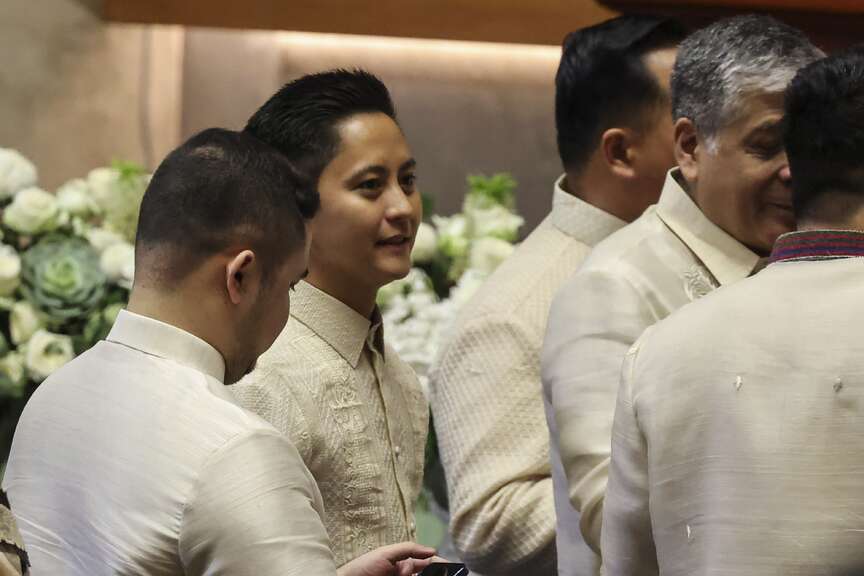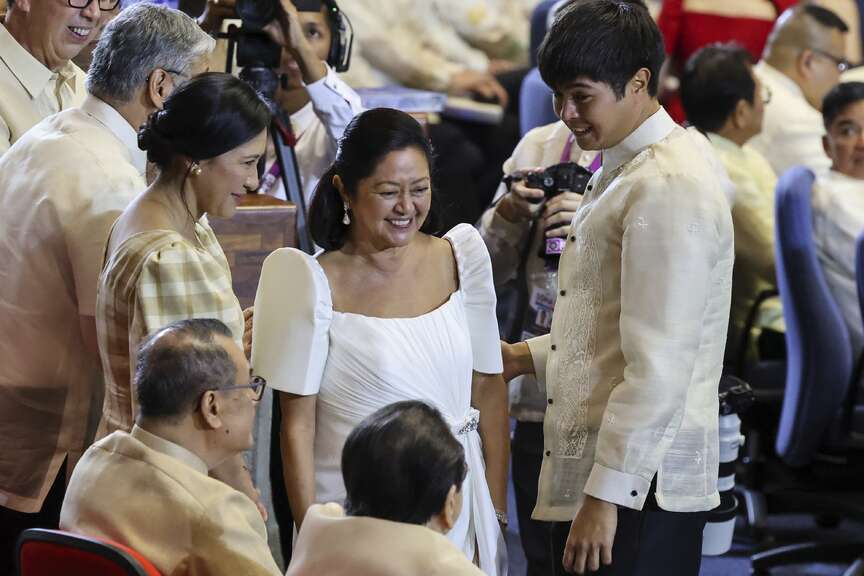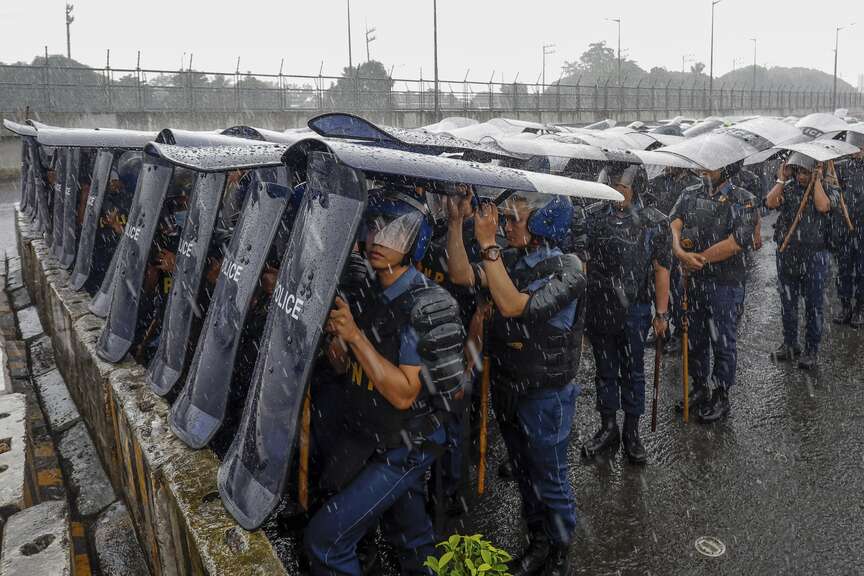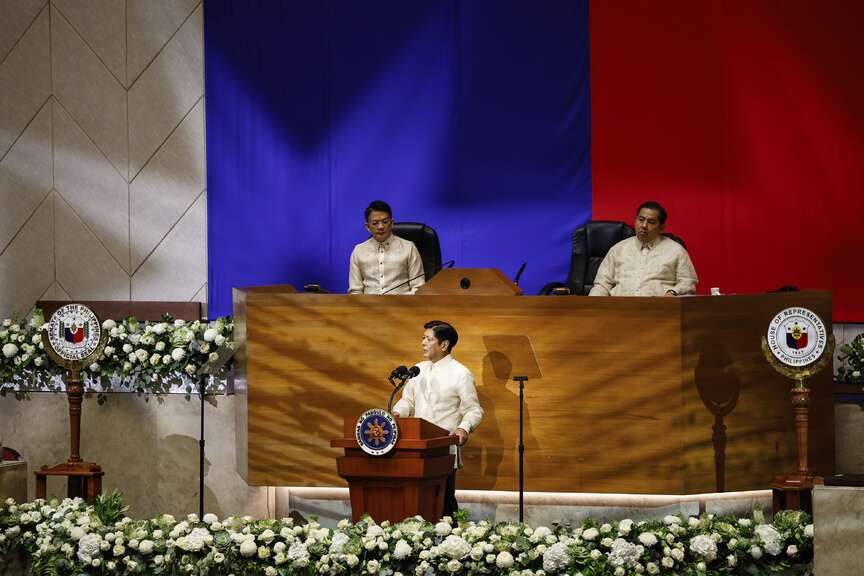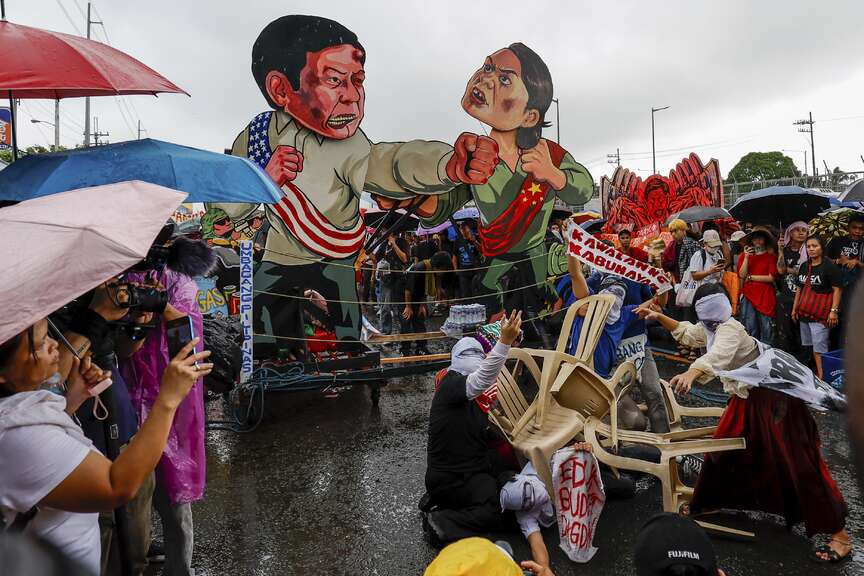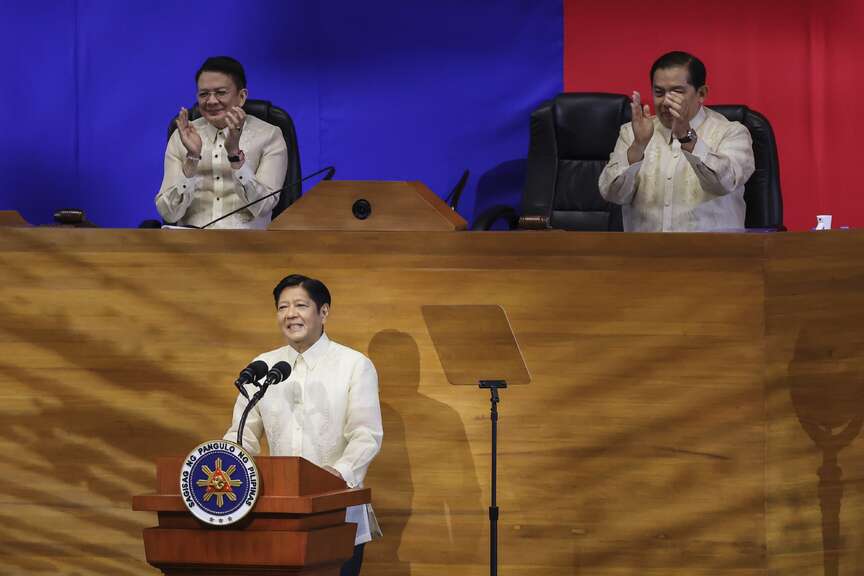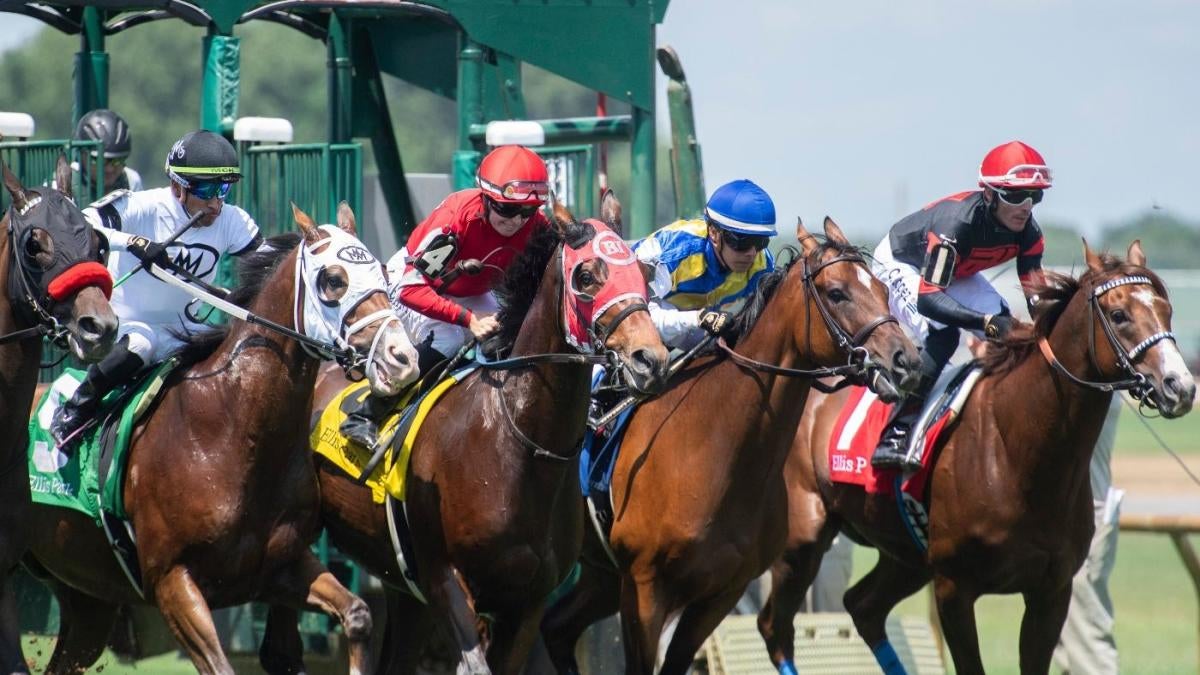MANILA, Philippines — President Ferdinand Marcos Jr. on Monday ordered an immediate ban on widespread and mostly Chinese-run online gaming operations in the Philippines, accusing them of venturing into crimes, including financial scams, human trafficking, torture, kidnappings and murders.
His move to ban the Chinese-run online gambling outfits — estimated to number more than 400 across the Philippines and employing tens of thousands of Chinese and Southeast Asian nationals– came amid an ongoing government crackdown backed by Beijing.
That has led to the shutdown of several sprawling complexes with dozens of buildings, where authorities suspect thousands of Chinese, Vietnamese and other nationals mostly from Southeast Asia have been illegally recruited and forced to work in dismal conditions.
Marcos announced the decision during his state-of-the-nation address, when he also said that the Philippines would press efforts to strengthen its defensive capability by forging security alliances with friendly countries to counter threats to its territorial interests in the South China Sea, adding that his country would only settle disputes through diplomacy.
The Philippines has a complicated relationship with China, including significant trade engagements and cooperation against crimes. But the neighboring Asian countries have also had longstanding disputes in the South China Sea that have grown increasingly hostile since last year.
Related, Philippine senators ordered the arrest of a town mayor in Tarlac province north of Manila who has failed to appear at public hearings where allegations against her were being investigated, including her alleged links to a large online gambling complex near her town hall and suspicions that she fraudulently hid her Chinese nationality to be able to run for a public office reserved only for Filipinos.
Mayor Alice Guo has denied any wrongdoing but has been suspended from her post with her financial assets ordered frozen. Philippine senators say the massive online gambling industry has flourished largely due to corruption in regulatory agencies and payoffs to local officials.
“Disguising as legitimate entities, their operations have ventured into illicit areas furthest from gaming such as financial scamming, money laundering, prostitution, human trafficking, kidnapping, brutal torture, even murder,” Marcos said in his address. “The grave abuse and disrespect to our system of laws must stop.”
Marcos ordered the government’s gaming agency to wind down the operations of the so-called Philippine offshore gaming operators, or POGOs, by yearend, drawing loud applause from legislators and top officials at the House of Representatives.
He asked labor officials to look for alternative jobs for Filipino workers who would be displaced because of the shutdown.
Setting out his vision for the year ahead, Marcos outlined moves to address a range of issues, including soaring costs of food and electricity, poverty and low wages.
His administration’s “bloodless war” on dangerous drugs never aimed at “extermination,” Marcos said in an obvious criticism of his predecessor’s brutal anti-drugs crackdown that left thousands of mostly innocent suspects killed.
The International Criminal Court has been investigating the widespread drug killings under former President Rodrigo Duterte as a possible crime against humanity.
Information for this article was contributed by Joeal Calupitan of The Associated Press.
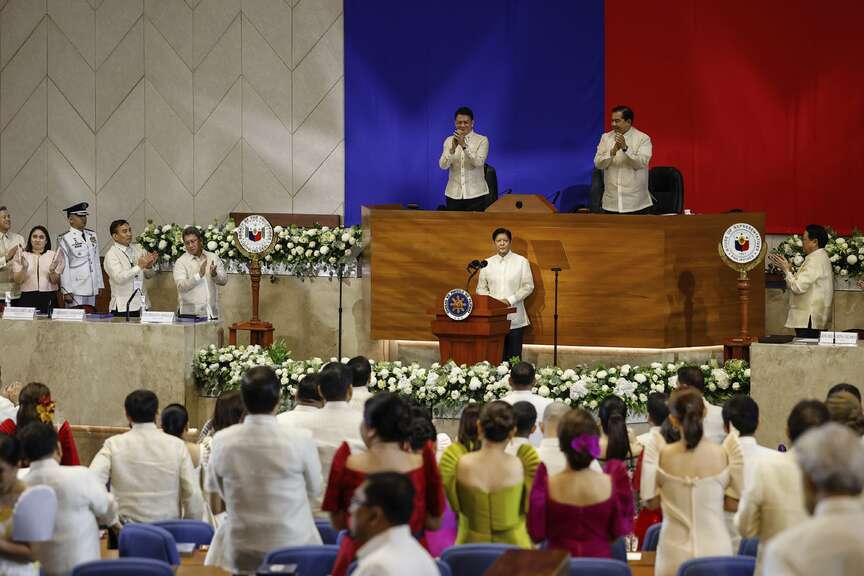 Philippines President Ferdinand Marcos Jr. center, receives a standing ovation during his third State of the Nation Address as Senate President Francis Escudero, top left and House Speaker Martin Romualdez, top right look on at the House of Representatives in Quezon City, Philippines, on Monday, July 22, 2024. (AP Photo/ Gerard V. Carreon)
Philippines President Ferdinand Marcos Jr. center, receives a standing ovation during his third State of the Nation Address as Senate President Francis Escudero, top left and House Speaker Martin Romualdez, top right look on at the House of Representatives in Quezon City, Philippines, on Monday, July 22, 2024. (AP Photo/ Gerard V. Carreon)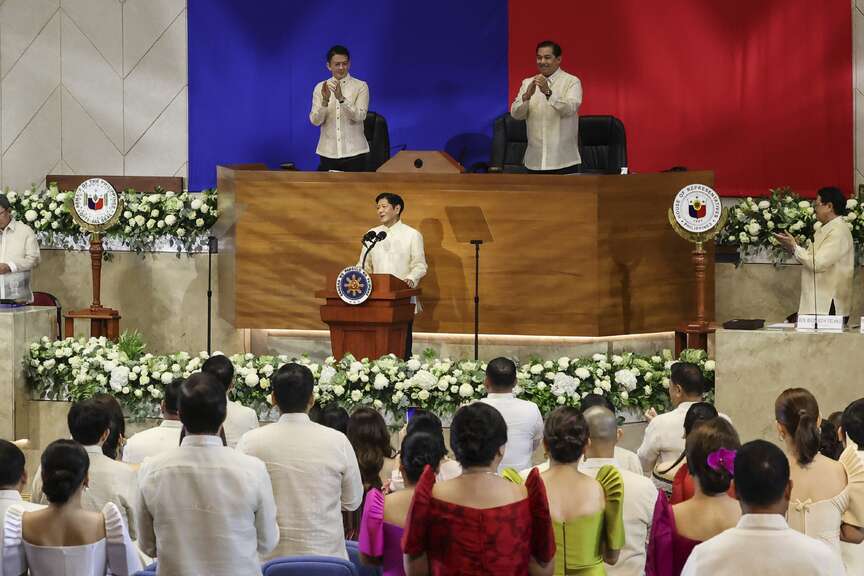 Philippines President Ferdinand Marcos Jr. center, receives a standing ovation during his third State of the Nation Address as Senate President Francis Escudero, top left and House Speaker Martin Romualdez, top right look on at the House of Representatives in Quezon City, Philippines, on Monday, July 22, 2024. (AP Photo/ Gerard V. Carreon)
Philippines President Ferdinand Marcos Jr. center, receives a standing ovation during his third State of the Nation Address as Senate President Francis Escudero, top left and House Speaker Martin Romualdez, top right look on at the House of Representatives in Quezon City, Philippines, on Monday, July 22, 2024. (AP Photo/ Gerard V. Carreon)

